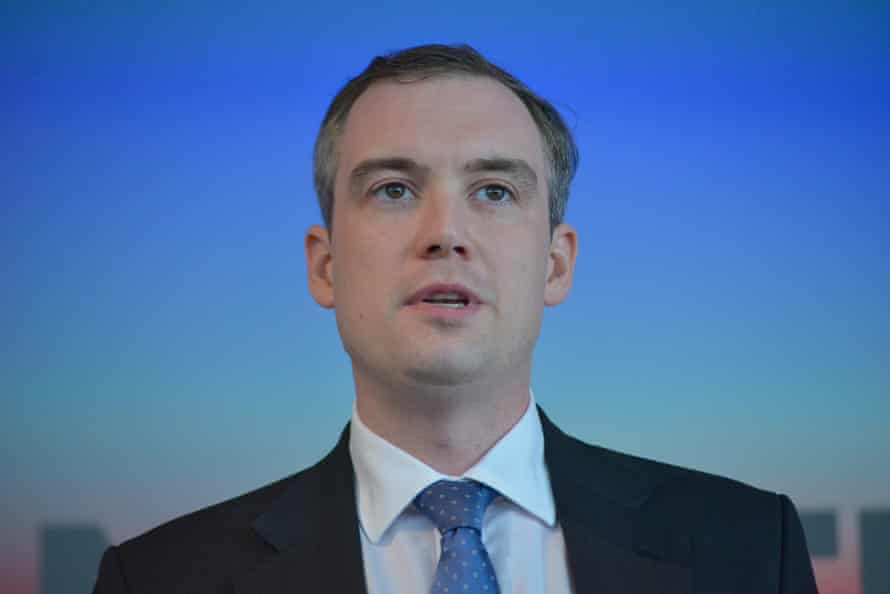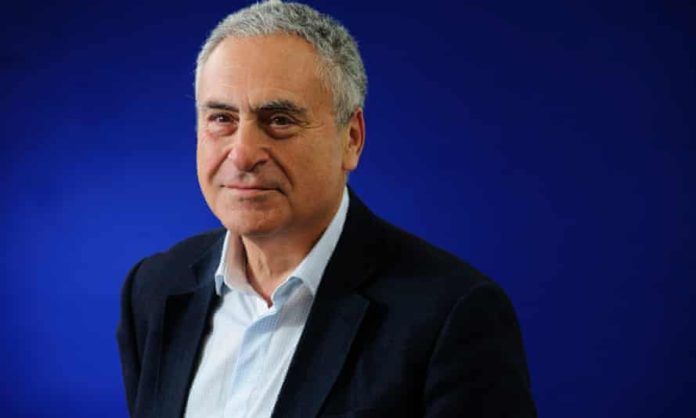Sir Ivor Crewe was interviewed for post of head of the Office of Students but job was given to former Tory MP
Perhaps it was the long passage in Professor Sir Ivor Crewe’s book The Blunders of Our Governments about the way ministers’ mistakes never catch up with them that led Gavin Williamson to reject the expert as the new head of the Office for Students.
Or maybe the education secretary was put off by the section of the 2013 book, written with the late Anthony King, dealing with how ministers put underqualified, inexperienced people in charge of public bodies.
The job of independent regulator of higher education in England was instead handed to James Wharton, a 36-year-old former Tory MP with no experience in higher education who ran Boris Johnson’s leadership campaign. But the Observer can reveal that Crewe – the former vice-chancellor of the University of Essex, one-time head of Universities UK and most recently the master of University College, Oxford – was interviewed for the post and rejected.
“I can confirm that I was interviewed for the post of chair of the Office for Students and was informed by the DfE that I ‘met the required standard for the role’,” he said in an email to the Observer. “On this occasion, however, the secretary of state has selected another candidate as his preferred candidate for this appointment. I do not wish to comment on the interview, which was confidential.”
Wharton’s appointment has been criticised by opposition politicians and students, who say he lacks independence – he will take the Tory whip in Lords votes – and experience.
During his seven years as MP for Stockton South, Wharton seldom talked in the Commons about education. Hansard lists 23 occasions when he spoke about universities or education – Crewe has been cited more often by politicians of all sides – and lists just one occasion when he mentioned students, to talk about his days reading politics and law at Durham University. He was race awareness officer of the student union and president of the Conservative association.
After being elected in 2010, Wharton was made minister for the northern powerhouse in 2015 and joined the Department for International Development the following year, but lost his seat in 2017.
Having helped Johnson win the race to succeed Theresa May in 2019, Wharton was enobled and became Baron Wharton of Yarm last year.

The commissioner for public appointments, Peter Riddell, criticised the make-up of the five-strong panel that interviewed Wharton and Crewe as being packed with political allies. In a letter to the Committee on Standards in Public Life, Riddell wrote of signs that “some at the centre of government want not only to have the final say but to tilt the competition system in their favour to appoint their allies”.
Ministers have been criticised for giving lucrative government contracts to firms with connections to the Conservative party, and a number of high-profile public appointments have gone to close personal contacts of cabinet members.
The new BBC chairman, Richard Sharp, was an adviser to Johnson and the chancellor, Rishi Sunak. Dido Harding, a close friend of David Cameron, was appointed to head NHS Test and Trace and will take over as chair of the new National Institute for Health Protection. Paul Dacre, the former editor of the Daily Mail, is tipped as the new head of Ofcom, the communications regulator.
Lord Blunkett, the former education secretary, said: “This is not about particular personality, it’s not even – important as it is – about competence. It’s now about an overwhelming belief at the highest levels of government that ‘the winner takes all’.
“The Conservatives clearly believe that their right to rule should stretch into every aspect of our lives – in the development of what Antonio Gramsci would have described as hegemony, and what Margaret Thatcher called being “one of us”. Once this is understood, the explanation for public appointments right across the board becomes obvious.”
When Wharton does take up his two-day-a-week, £60,000-a-year role in April, he is likely to come under pressure from students who feel let down during the pandemic by the Office for Students, which was created in 2018.
Patrick O’Donnell, the president of York University Students’ Union, said many students were in severe financial hardship due to the lockdowns, and a £50m support package for students in England worked out at only £25 each, compared with £400 in Wales and £500 in Northern Ireland. He said: “The OfS is not meeting the real concerns of students and I don’t think it is adequately representing students.It’s the Office for Students, so it should be fighting for students.
“I think the vast majority of students would have concerns about Lord Wharton’s ability to perform his role while maintaining the Conservative whip and I’m not sure what wider experience he has in the higher education sector.”He said the OfS had been focusing on issues such as no-platforming, when a survey showed that in the 2019 academic year only six events of nearly 10,000 had been cancelled.
The government did not comment, but has said Wharton’s appointment was regulated by the commissioner and in line with the Governance Code on Public Appointments. The code lists several principles including that ministers must avoid taking decisions to gain financial benefits for themselves, their family or their friends. (Theguardian)





